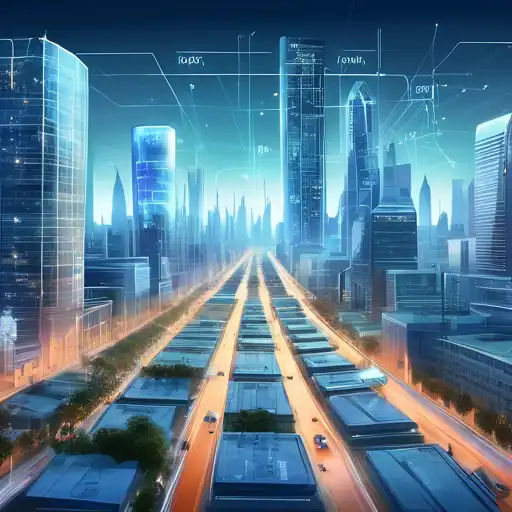Introduction to IoT and Smart Cities
The Internet of Things (IoT) is revolutionizing the way cities operate, making them smarter, more efficient, and more responsive to the needs of their inhabitants. By connecting devices, vehicles, and infrastructure to the internet, cities are able to collect and analyze data like never before, leading to improved services and quality of life for residents.
Key Areas Where IoT is Making an Impact
From traffic management to waste disposal, IoT technologies are being deployed across various sectors to enhance urban living. Below are some of the key areas where IoT is making a significant difference:
- Traffic and Transportation: IoT-enabled sensors and cameras help monitor traffic flow in real-time, reducing congestion and improving public transportation systems.
- Energy Efficiency: Smart grids and meters allow for more efficient energy use, reducing costs and environmental impact.
- Public Safety: IoT devices can detect and alert authorities to potential safety hazards, from crime to natural disasters.
- Waste Management: Smart bins and waste collection systems optimize routes and schedules, making cities cleaner and more sustainable.
Benefits of IoT in Urban Development
The integration of IoT into city infrastructure offers numerous benefits, including:
- Enhanced efficiency and reduced operational costs
- Improved environmental sustainability
- Greater citizen engagement and satisfaction
- Increased safety and security
Challenges and Considerations
Despite its many advantages, the implementation of IoT in cities is not without challenges. Privacy concerns, cybersecurity risks, and the need for significant investment are among the key issues that need to be addressed. However, with careful planning and collaboration between governments, businesses, and communities, these challenges can be overcome.
Future Prospects
As technology continues to evolve, the potential for IoT to transform urban environments is limitless. Future developments may include more advanced AI integration, autonomous vehicles, and even smarter buildings, further enhancing the efficiency and livability of cities around the world.
For more insights into how technology is shaping our future, explore our articles on technology trends and sustainable urban development.
Conclusion
The role of IoT in making cities smarter cannot be overstated. By harnessing the power of connected devices and data analytics, urban areas are becoming more efficient, sustainable, and livable. While challenges remain, the future of smart cities looks bright, with IoT at the heart of this transformative journey.
